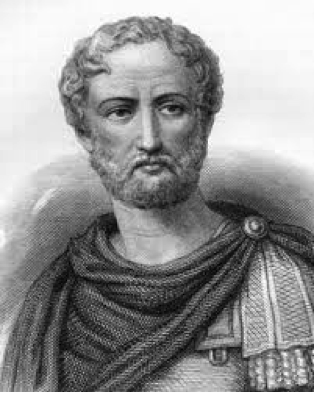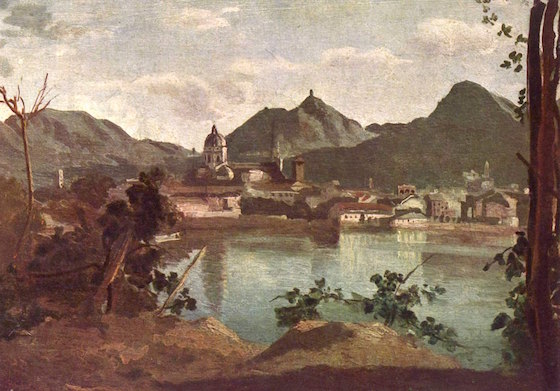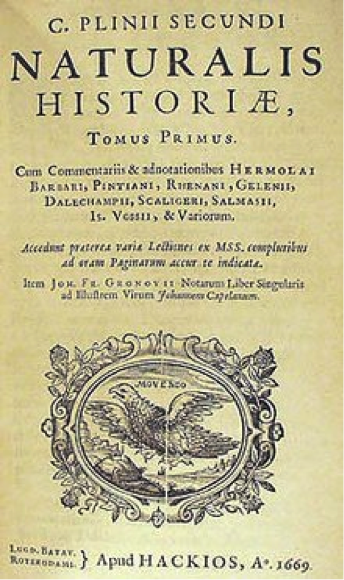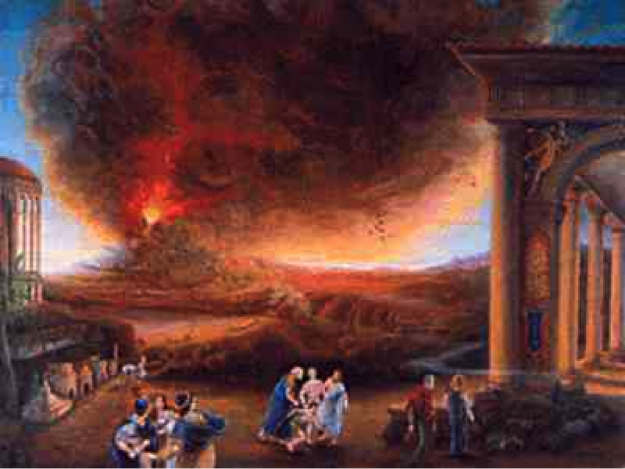By Jocelyn Hitchcock, Contributing Writer, Classical Wisdom
Pliny the Elder was an author, philosopher, and commander in the Roman Empire in the 1st century CE. Throughout his life, Pliny the Elder wrote an encyclopedic work, the “Natural History,” that was often referred to even up to the modern period…indeed, it became the editorial model for encyclopedias. He cultivated a friendship with the Roman Emperor Vespasian, reached social prominence throughout Rome, and was remembered by his nephew’s, Pliny the Younger, letters and writings.

Pliny the Elder Portrait
Pliny the Elder’s Early life
He was born to a prosperous family circa 23 CE in Novum Comum, a colony founded in 59 BC by Caesar. Although we don’t know much about his family life, we do know he had a sister (Pliny the Younger’s mother) and that his father possessed enough wealth to be a part of the equestrian class. This relative wealth allowed Pliny to attend school throughout his youth and eventually live in Rome by his 30s. He was possibly educated in lawmaking and certainly took to literature and observation.

City and Lake of Como, painted by Jean-Baptiste-Camille Corot, 1834
Pliny the Elder’s Early Career and Writings
By the age of 23, Pliny began his army career as a junior officer. He was a commander in the campaign against Chauci in 47 CE and aided in the canal construction between the Maas and Rhine rivers. Another campaign was against the Chatti tribe in 50/51, during which he wrote his first treatise, a short piece on spear throwing from horseback, which has unfortunately been lost to history now.
Soon after the spear treatise, Pliny wrote both the Life of Pomponius Secundus and the History of the Germanic Wars (of which is separated into 20 different volumes) while he was still in the Rhine army. Upon his return to Rome, Pliny, now 36, had reached a certain level of respectability, notice, and wealth. A career in public life and politics could have been possible, however the changing political climate (Nero now in his 5th year of rule) discouraged him from pursuing it. Instead, Pliny retired from public life and began in earnest a life of literature.

Natural History, by Pliny the Elder
Pliny the Elder’s Writing Career
As it often goes, a great deal of Pliny the Elder’s works are lost to us now. However, his nephew, Pliny the Younger, detailed several in his own writings: The Scholar, Problems in Grammar, and a Continuation of the History of Aufidius Bassus.
Of course, the most famed, and final, of Pliny the Elder’s writings was the Natural History. In this encyclopedic work, Pliny aimed to collect personal experiences, prior works, and extracts from other works in order to compile a broad range of knowledge of the time. It was divided into 37 different books and explained his title as in support of “the nature of things, that is, life.” Topics covered were cosmology and astronomy, physical and historical geography of major cities, zoology, biology, botany, horticulture, medicine, and drugs (to name a few).
The book was written in rather a plain style, but with elaborate vocabulary where it suited. Pliny also spent the entirety of Book 1 detailing his sources, which was quite novel for the time.

The Vesuvian eruption
Pliny the Elder’s Death
Having been stationed as a fleet commander in Misenum in August 79, Pliny was victim to the eruption of Mount Vesuvius. As was his nature to observe and comment, Pliny had noticed the cloud above the mountain and wanted to explore it more. On his way crossing the Bay of Naples, he received a letter from his friend Rectina asking Pliny to come and rescue her. He left to do so, but never returned.
Most of Pliny the Elder’s life, and his death, comes down to us through his nephew. Pliny the Younger’s account of his uncle’s death and the Vesuvian eruption is a withstanding piece of writing that is quite haunting, though written in simple and plain style.
However, Pliny’s heroic death at the hands of volcanic ash was probably a romanticized fable spread by Pliny the Younger and family. It is more likely, then, that Pliny the Elder died of a heart attack, as recent examination points to the fact that Pliny was likely overweight, of ill health, and not as active in the navy as we’ve been led to think. Nevertheless, his works and contributions to ancient knowledge persevere, especially in the form of the encyclopedia.









No comments
Trackbacks
Our apologies, you must be logged in to post a comment.